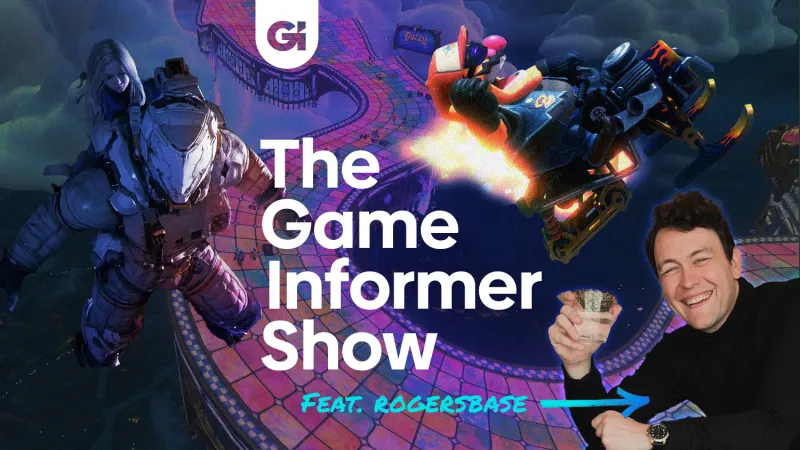
Karma: The Dark World Understands That Horror Lives in Your Head

Stephen King once famously wrote that there were three levels of terror: the gross-out, when blood and guts are everywhere; horror, as King put it, “the unnatural, spiders the size of bears, the dead up and walking around, it’s when something with claws grabs you by the arms”; and terror: “when the lights go out and when you feel something behind you, you hear it, you feel its breath against you, and you turn around, there’s nothing there.” King believed terror was the finest emotion of the three, and it’s the one he always tried to evoke in his readers. And make no mistake, terror is an emotion. Horror is something you experience. Terror is the work of the mind, the imagination of what’s absent, of what might be under the rug or around the corner. It is what you live through. Karma: The Dark World has its share of horror, yes. But it is primarily concerned with terror. And more to the point, it is good at it.
There were times during my roughly two-hour demo when I was playing at night, with headphones off, and I had to pause and take a breath. Horror games don’t generally “scare” me. I don’t jump, don’t yell, don’t scream. I know the tricks. But it was two in the morning and I was tired and alone and wearing headphones and something had wormed its way into my brain, and when I had to climb into that vent to enter that blocked-off, red-tinged room, I decided that was enough for the evening.
Karma is full of little moments like that, where you don’t want to go forward, don’t want to bear witness, but you must. Karma is set in an alternate-history 1976, and you’re stepping into the shoes of Roam Agent Daniel McGovern. Daniel is what they call a Nightcrawler. An employee of the omnipresent Leviathan Corporation’s Thought Bureau, he spends most of his time inside other people’s heads. As my demo started, he was being sent to investigate Sean Mehndez, who was accused of stealing something from the Winston Research Institute. You’re to investigate that, as well as an “unusual incident” that took place in the clerical office around the same time. It sounds, as Daniel notes, fairly routine. It isn’t.
Big Brother is Watching
Karma’s world is explicitly dystopian, and you’ll notice how wrong everything feels right off the bat. Some people have televisions for heads. Everyone has a social level, and every minor infraction is recorded, catalogued, tracked, and held against you – even things as seemingly insignificant as having a stain on your work uniform or applying makeup during work hours. Telescreens requiring user IDs, shaped like floppy disks, are tied to social level and hang in every room. Leviathan’s all-seeing eye is watching you. None of this stuff was explained in the demo I played. It didn’t need to be; you understand it immediately, the way you understand a weight hanging around your neck, the same way you understand a noose. This world is wrong, which only adds to what’s to come.
Karma is a first-person game, which only adds to the dread that creeps into you as you play. You are always aware of what you can’t see, what you have to look away from to progress, what might happen if you do. Daniel’s investigation starts off innocently enough. You explore the Research Institute, piecing together what has happened and solving simple puzzles. You need an ID to open the storage room, so you piece together the code by reading a diary entry and using that to find the clue you need in the world. But soon, The Horrors ™ start to creep in. “Don’t look back” appears scrawled on a wall when you flick off a lightswitch. If you do, you’ll see… something, a man, a shape, a ghost, appear and then vanishes. When you examine the recordings of infractions, some…thing with too many legs seems to be in the image. Something is deeply wrong here.
Karma builds dread in more subtle ways, too. Musical stings that appear and then vanish as suddenly as they came, seemingly at random. The lighting of a room. The destroyed area you’re to investigate. It always feels like you’re moving towards something, witnessing something, and often, you won’t want to. Daniel even moves slowly, lumbering, like he knows he shouldn’t be here, that advancing will lead him to a place he doesn’t want to go.
Splinters in the Mind’s Eye
The most memorable moment of my time with Karma came after I found the evidence of Mehndez’s crime. When I went to return it via the pneumatic tubes that dispensed my orders, I saw Mehndez walking, like a ghost, through the hallway. I followed him, and he led me into a dark room, with a single door. When I entered, I found myself in what I can best describe as Twin Peaks’s Black Lodge: red curtains everywhere, mannequins, a family around a table. It took me a moment to realize I was seeing Mehndez’s memories – his life, his fears, maybe. Something. I read about his daughter, saw her room, and then when I returned, they had moved in front of the TV, and eventually, they led me to an elevator going down. I descended.
What followed was one of the most disturbing sequences I’ve ever experienced in a horror game. Alarm clocks hanging from the ceiling, going off. Bodies covered in some sort of black goo, mannequins splattered with blood, lying haphazardly along gurneys. I learned about what had happened to Mehndez, to his wife, his daughter. I watched their home disintegrate; I put my hand into a computer and watched a man, strung up by his arms, explode; I entered an office and watched it go mad, the mannequins inside cowering in fear. At one point I turned around, tried to go another way, and they were all suddenly behind me, hands up, forcing me to go forward. Sometimes, the greatest horror is to be forced to watch. And I thought of Revelation. And a voice said “come and see,” and I looked.
I saw those mannequins hover, saw the black goo cover the floor, saw Mehndez’s home disintegrate further, learned what befell his family. And the curtains around me, always the red curtains. Then back into the office, answering the ringing phone, previously silent. “War. Peace. Freedom. Slavery. Ignorance. Strength,” said the voice on the other end. I recognized the words. Orwell. 1984. Big Brother is watching you. And I followed them, followed them until I reached an office where I could walk through the screen and see the big eye that had been watching me, and I saw that eye sprout more eyes, and I watched it follow me as I climbed stairs supported by nothing, and I saw three doors leading nowhere, and another phone, and I answered it, and someone, a woman, told me that she was sorry, that none of this was supposed to happen. And I entered the door in front of me, and something came after me, something I barely glimpsed but that horrified me all the same, and I fell. And then Daniel woke up, and I let out a breath I didn’t know I was holding.
Was it real? Had it happened? Had Daniel imagined it? Did it matter? Like him, I had experienced it and I will remember those images, real or not. We can be haunted by what seem like dreams, by the unreal, the uncanny, the wrong. It is where horror lives. In the mind. There was more to my demo past this, but terror is best experienced, so I will end here, and say Karma: The Dark World beckons you to come and see. And if developer Pollard Studio can deliver that feeling, that dread that compels, that horrifies, that you feel, for the rest of Karma: The Dark World’s runtime, then it is a journey that I will be happy to live through. My eyes are open.




